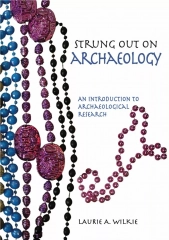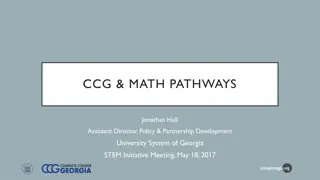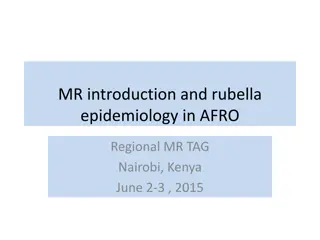
Constructive Analysis of Radicalisation Attitudes and Policies
Explore a nuanced approach to radicalisation issues, delving into underlying factors, societal impact, community resilience, and ethical research methodologies. Engage with diverse viewpoints and alternative discourses for a comprehensive understanding.
Download Presentation

Please find below an Image/Link to download the presentation.
The content on the website is provided AS IS for your information and personal use only. It may not be sold, licensed, or shared on other websites without obtaining consent from the author. If you encounter any issues during the download, it is possible that the publisher has removed the file from their server.
You are allowed to download the files provided on this website for personal or commercial use, subject to the condition that they are used lawfully. All files are the property of their respective owners.
The content on the website is provided AS IS for your information and personal use only. It may not be sold, licensed, or shared on other websites without obtaining consent from the author.
E N D
Presentation Transcript
+ CONRAD Constructive analysis of the attitudes, policies and programmes that relate to radicalisation
+Partners KU Leuven, Criminology ULg, Sociology Odisee, Social Work KU Leuven, Media Studies CRVI Centre R gional de Verviers pour l Int gration D Broej Terrain d Aventures de Hodimont
+Objectives To reframe radicalisation" in a constructive and nuanced way. What are the ingredients of the complex phenomenon underlying radicalisation ? What is the underlying conditionof which radicalisation is a symptom? How does radicalisation take place, not only on an individual scale but also in society at large? How do local communities experience discourses, policies and programmes developed to tackle radicalisation ? How can enhancing resilience in local communities be responsive to experiences with these discourses, policies and programmes regarding radicalisation ? Which alternative discourses can be developed to talk about radicalisation and how can these be useful for civil society and public bodies? How can research on radicalisation be undertaken in an ethically sound way?
+Methodologies Policy analysis Literature review Framing analysis Action research Dialogue tables Digital storytelling
+Methodologies Three parallel tracks: Policy analysis Framing analysis Action research Brussels Verviers
+ The radicalisation machine: why radicalisation is a problematic concept Keynote lecture: F. Khosrokhavar (EHESS) Presentation: M. Figoureux (KU Leuven) Panel: Radicalisation, a problematic concept in research, policy and practice Keynote lecture: M. de Koning (UvA) Presentation: T. Flachet (D Broej) and M. De Backer (KU Leuven) Panel: The impact on local communities







